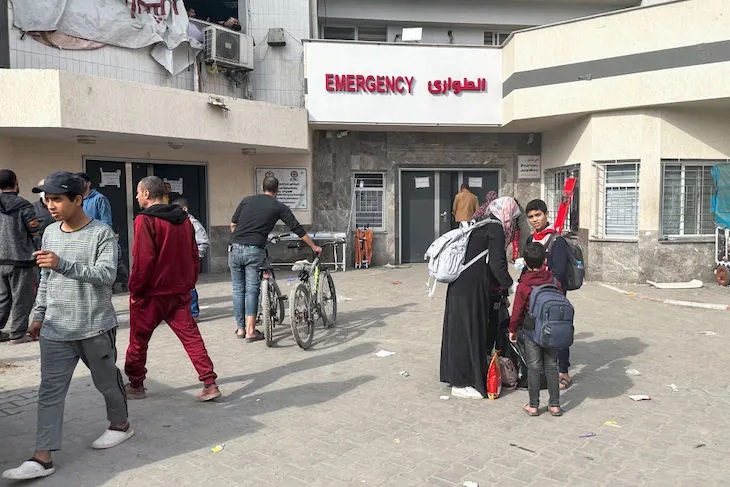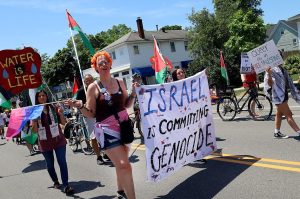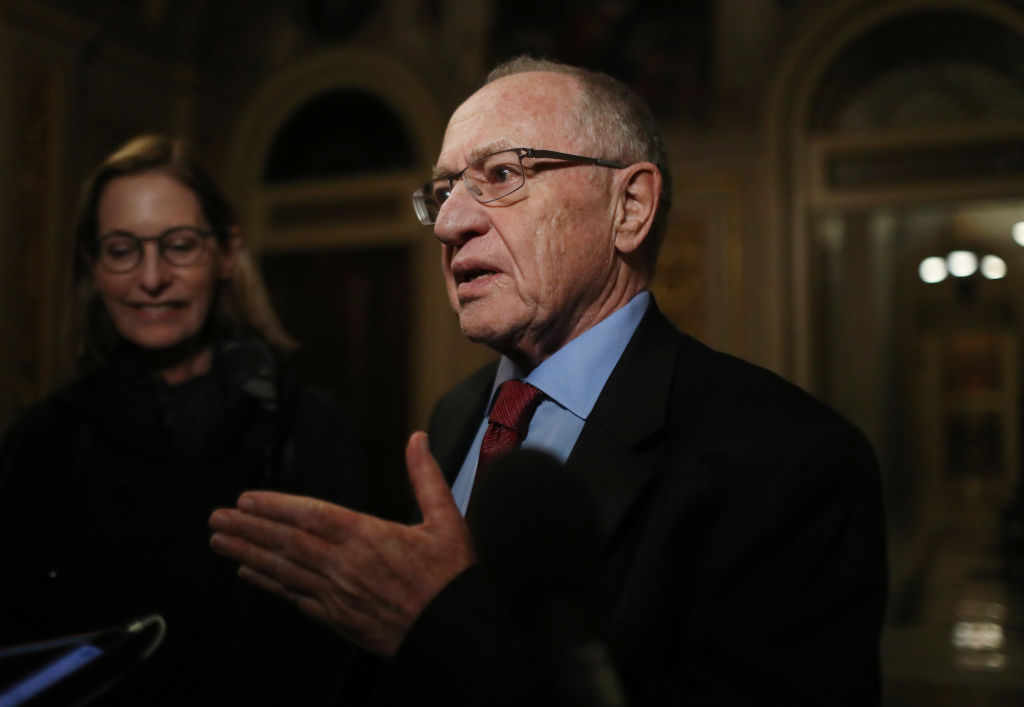Gaza’s largest hospital, al-Shifa, was once again turned into a battlefield yesterday. Five hours of fighting between Israel and Hamas at the hospital, viewed by Israel as a base used by terrorists, led to some eighty Palestinians being detained. Israel claimed to have killed about twenty terrorists in the precision raid, including Faiq Mabhouh, the head of Hamas’s internal security operations. The Israeli Defense Forces also found a large cache of weapons, including rifles, grenades, rocket launchers and cash hidden inside al-Shifa.
Mabhouh’s death follows that of Marwan Issa, deputy commander of Hamas’s military wing, last week. These killings will dramatically weaken Hamas, but Israel remains some way off the “total victory” sought by the country’s prime minister Benjamin Netanyahu.
Israel claimed to have killed about twenty terrorists in the precision raid
Hamas shows resilience by re-grouping and carrying on fighting despite suffering major blows at the hand of Israeli forces. As it struggles for survival, Hamas is likely to continue to use facilities like al-Shifa to hide behind vulnerable civilians. This approach has long been Hamas’s modus operandi. For years, Israel has known about Hamas’s use of hospitals, schools, nurseries and places of worship, but in the past it refrained from attacking such targets out of concern for civilian casualties. Although those fears remain, Israel knows it cannot defeat Hamas without operating in those spaces, and its military takes precautions to minimize casualties among civilians.
But even if it continues to take the war to Hamas, this is an organization that is unlikely to be completely annihilated. The ideology that guides Hamas — the destruction of Israel — will certainly not go away. Israel may need to settle for the removal of Hamas from power and disabling their military ability enough so they do not use a major threat to Israel.
Israel is convinced that, in order to do so, it must also operate in Gaza’s southern city of Rafah: the last significant Hamas stronghold. Israel’s war cabinet has been pressing on with plans to target Hamas forces in the city despite major international pressure and criticism. President Joe Biden has warned Netanyahu that a major assault on Rafah would be a “mistake.” Will Israel ignore his warning? In order to placate its critics and, crucially, minimize casualties, Israel is hatching a plan to evacuate civilians from the areas of the city where most of the fighting is likely to take place. But with over 1.3 million people in Rafah, this will be a complicated task.
Military force is Netanyahu’s preferred method, but he is facing growing pressure from within his own ranks to find a solution for the power vacuum that will be left in Gaza after Hamas’s demise. To the frustration of Biden, as well as Israeli defense minister Yoav Gallant, Netanyahu has refused to entertain the thought of the Fatah-led Palestinian Authority ruling Gaza.
Most recently there were reports that Israel was in talks with the leaders of several Palestinian clans in Gaza to explore the option of them running Gaza instead of Hamas. Their contact with Israel has allegedly led to swift punishment by Hamas. But while fighting between the sides continues, so do negotiations for a ceasefire deal. The current talks are expected to last some weeks, and Netanyahu hopes that killing high ranking Hamas commanders and the threat of a Rafah operation will aid negotiations and get Hamas to compromise over a deal. This agreement may have to include the release of hundreds of Palestinians, including dangerous terrorists, but there is one red line that Netanyahu will not cross: a permanent truce leaving Hamas in control of Gaza.
This article was originally published on The Spectator’s UK website.


























Leave a Reply